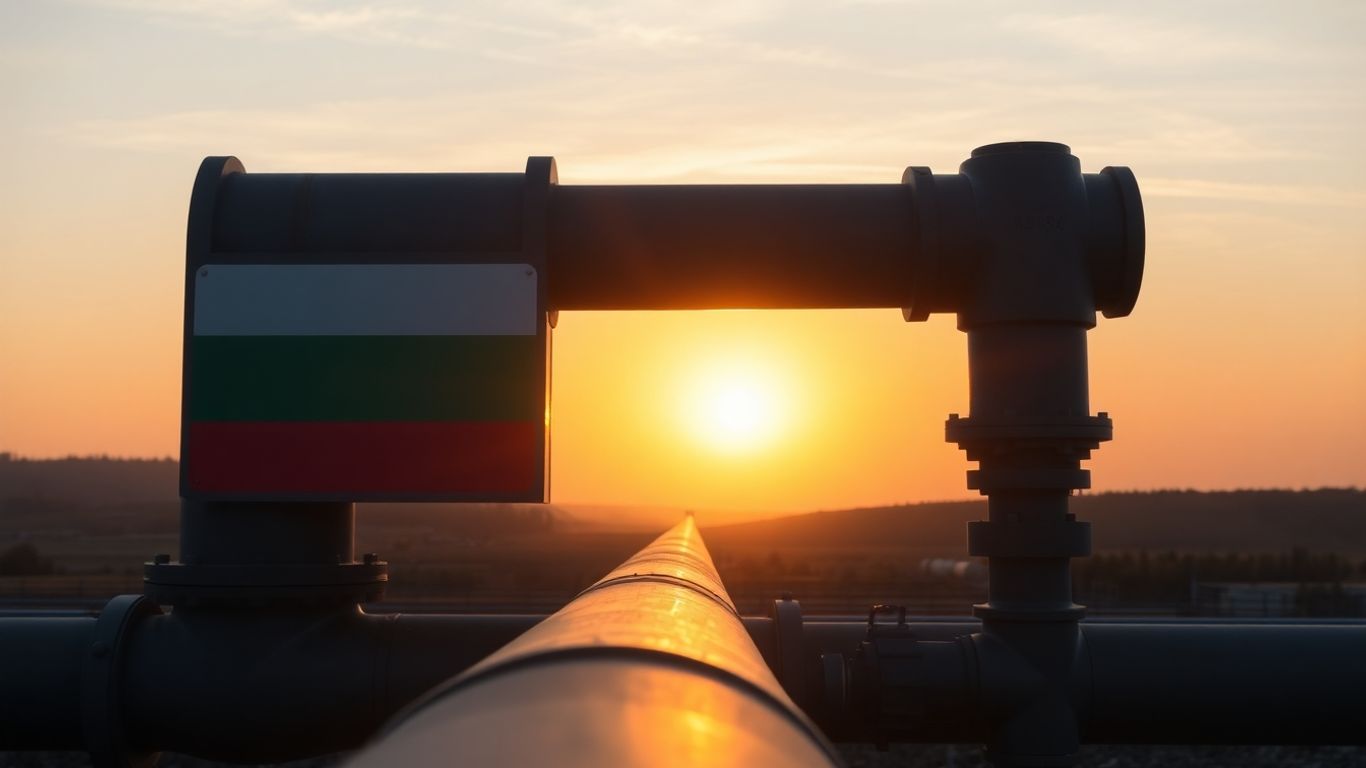Bulgaria has announced its intention to suspend the transit of Russian natural gas through its territory by 2026, a move that aligns with the European Union’s broader strategy to phase out Russian energy imports. This decision marks a significant shift in Bulgaria’s energy policy, aiming to bolster energy security and diversify supply routes.
Key Takeaways
- Bulgaria will suspend short-term contracts for Russian gas transit in 2026 and aims for a full phase-out by 2028.
- The move supports the EU’s plan to end Russian gas imports, though some member states like Hungary and Slovakia have expressed opposition.
- Bulgaria seeks to become a major transit hub for liquefied natural gas (LNG) from U.S. terminals.
Bulgaria’s Strategic Shift
Prime Minister Rosen Zhelyazkov stated that Bulgaria will join EU decisions to suspend contracts for the use or transit of Russian natural gas, initially for short-term agreements in 2026 and a complete cessation by 2028. This decision is in line with the European Union’s objective to achieve complete independence from Russian gas imports, a goal initially set for the end of 2027. This strategic pivot aims to reduce reliance on a historically significant supplier and enhance national energy security.
Diversification and New Opportunities
Bulgaria’s Energy Minister Zhecho Stankov highlighted that ending Russian gas imports presents a "tremendous potential" for the country to become a key transit point for natural gas from U.S. LNG terminals. He confirmed that Bulgaria has already secured two deliveries for November and December originating from U.S. LNG terminals, which will supply both Bulgarian citizens and businesses. Previously, Bulgaria was entirely dependent on Russian gas until 2022, but has since been actively seeking alternative sources, including Azeri gas and LNG from a terminal in Greece.
EU Sanctions and Regional Impact
The proposed EU sanctions on Russian energy require unanimous backing from member states. However, Hungary and Slovakia have voiced opposition to new sanctions, citing concerns about energy security and potential price hikes. Despite these reservations, Bulgaria’s commitment to aligning with EU policy is firm. Hungary’s Foreign Minister Peter Szijjarto was reportedly assured by his Bulgarian counterpart that Bulgaria would remain a reliable transit partner, though the specifics of this assurance remain unclear amidst the broader EU policy shift. Experts suggest that countries like Hungary and Slovakia can find alternative supplies through LNG imports or additional pipeline shipments from Norway, countering claims of limited options.
Future Prospects and Regional Cooperation
Bulgaria is exploring regional cooperation for joint tenders for American LNG. Minister Stankov is consulting with neighboring countries on a new scheme for organizing these tenders, starting next year. This initiative aims to aggregate demand, potentially lowering prices for U.S. LNG. The EU is currently negotiating a bill to ban Russian gas imports, with a final agreement anticipated by the end of the year. Bulgaria’s position as the last entry point for Russian pipeline flows into the EU via the TurkStream pipeline makes its decision particularly significant for regional energy dynamics.






![A Nation Mourns: Thousands Bid Farewell to Folk Legend Halid Beslic Thousands mourn folk legend [Halid Beslic] at his funeral.](https://balkaneu.com/wp-content/uploads/2025/10/d4a6f2dfthumbnail-324x160.jpeg)